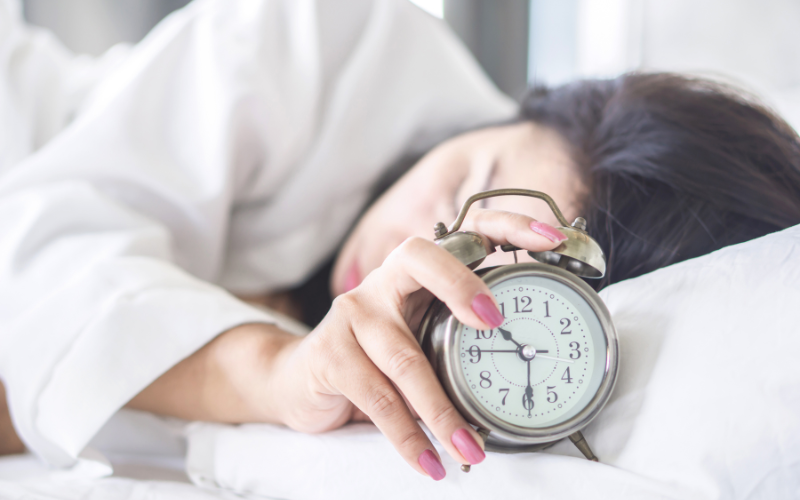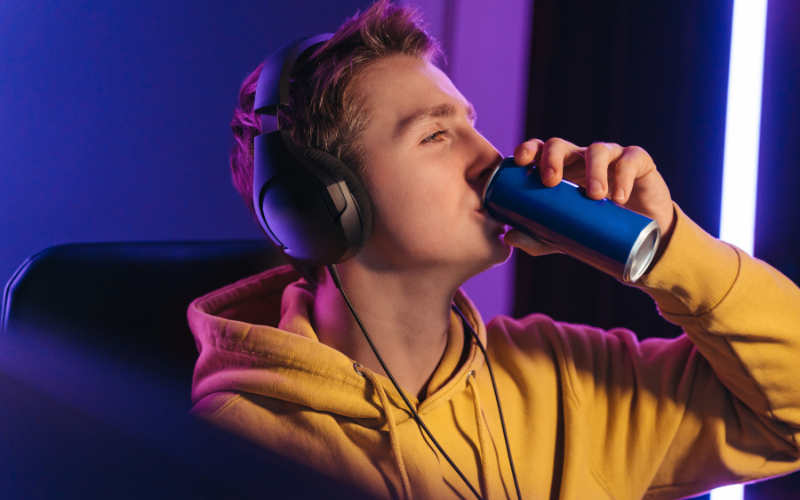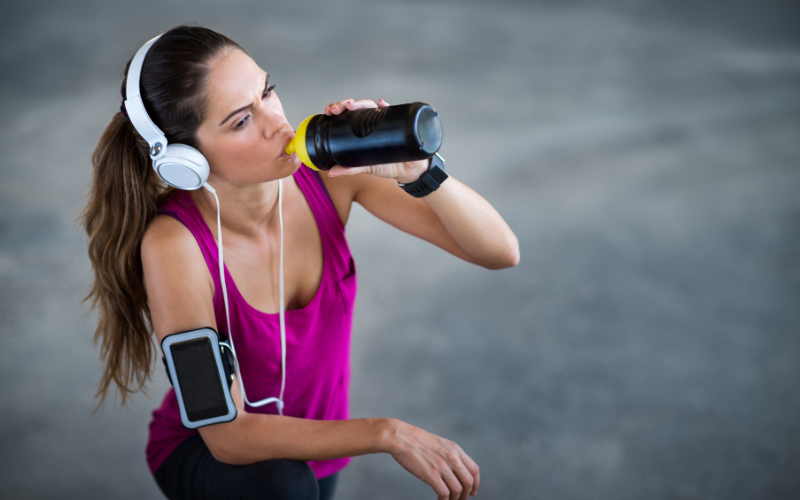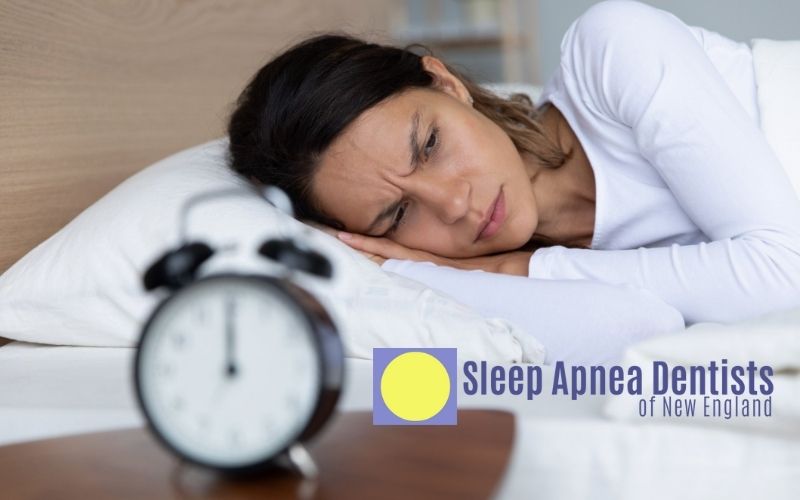Study Reinforces Link Between Mobile Phone Addiction and Insomnia
Original Article March 30, 2024 | Kyle Munz
A cross-sectional study utilizing self-reports from Chinese college students correlated mobile phone use with insomnia, bolstering previous research that made similar conclusions.
A study recently published in Frontiers Public Health reinforced the known correlation between mobile phone addiction and insomnia, while additionally suggesting that increasing one’s physical activity could mitigate this negative impact.
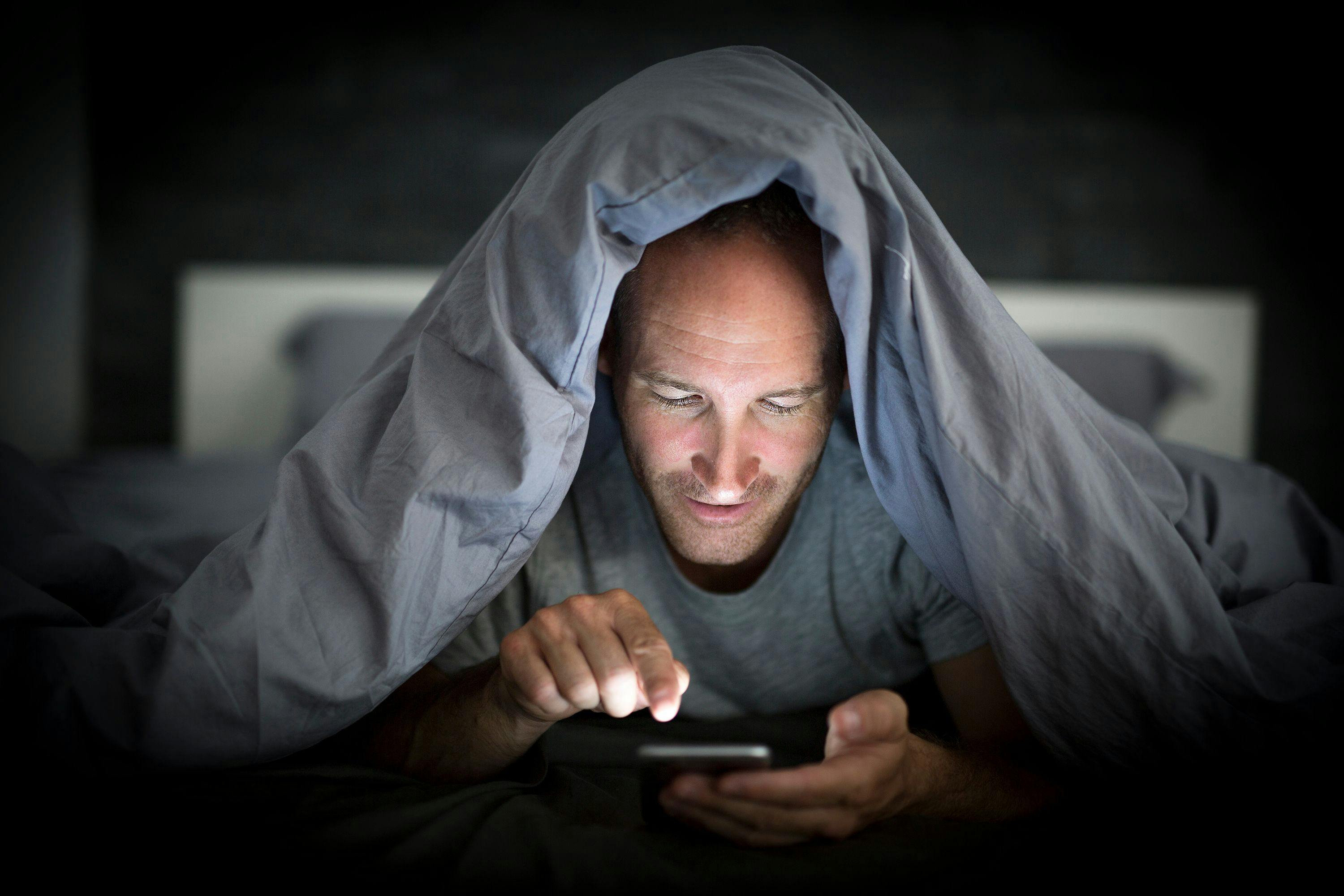
Man Endlessly Scrolling in Bed | image credit: Louis-Photo – stock.adobe.com
During the COVID-19 pandemic, the use of social media was seen as a benefit both for providing social support during large-scale isolation and disseminating information on public health. However, as the authors of the current study mentioned, the negative consequences associated with mobile phone use—such as its documented influence on insomnia—should not be ignored. The authors added that investigations into the effects of mobile phone use during the pandemic have largely focused on the mental health of adolescents while the outcomes related to insomnia have been unknown.
To address this gap in knowledge, researchers conducted a study to investigate what underlying factors influence the relationship between insomnia and mobile phone addiction in college students, considering the mediating role of social anxiety and the moderating role of physical activity. This study was conducted in China, which endured the first outbreak of COVID-19, and surveyed Chinese college students.
This study was conducted with an online questionnaire, which was completed by 301 college students. A student’s degree of mobile phone addiction was measured with the Chinese iteration of the Mobile Phone Addiction Tendency Scale (MPATS), where higher scores indicate more intense addiction. The Chinese iteration of the Social Phobia Inventory (SPIN) was used to measure social anxiety, and higher scores indicate higher levels of social anxiety. Physical activity levels were measured with the Physical Activity Rating Scale (PARS-3) and insomnia by the Insomnia Severity Index where, similarly in both, higher scores indicate higher levels of activity and more severe insomnia.
Their results showed that mobile phone addiction had a positive association with social anxiety (P < .001) and that social anxiety was positively associated with insomnia (P < .01). Overall, the correlation between mobile phone addiction and insomnia was found to be significant (P < .001). These findings suggested that social anxiety could be a mediator of this relationship because the indirect effect between them was also found to be significant (indirect effect = 0.03; SE = 0.01; 95% Boot CI, 0.01–0.06).
The self-reports indicated that more physical activity could reduce both feelings of social anxiety as well as feelings of addiction to one’s mobile phone. This moderating role of physical activity on the relationship between insomnia and mobile phone addiction was found to be significant (P < .05). The authors went on to comment that physical activity has previously demonstrated to be beneficial for the management of stress and loneliness, and can improve one’s mental health. The authors’ findings were consistent with prior reports in this area.
“But it is worth noting that social anxiety could only partially account for the relationship between mobile phone addiction and insomnia; thus other key latent indicators, such as interpersonal distress, should also considered when examining the mediation role between them afterwards,” they added.
The limitations of the study include the inability to establish causal relationships due to the cross-sectional design, the risk of recall bias that comes with self-reported data, and the use of convenient sampling which resulted in a moderate sample size. Additionally, the exclusive focus on college students during a specific pandemic period may limit the generalizability of the findings.
“In summary, our research results indicate that increasing physical activity and reducing social anxiety can improve insomnia symptoms among college students,” the authors concluded. “To prevent future problematic behaviors among college students, it is necessary to adopt proactive health behaviors, such as engaging in physical activity, to counteract or avoid subsequent passive impacts.”
Reference
Wang J, Xu X, Zuo L, Wang H, Yang G. Mobile phone addiction and insomnia among college students in China during the COVID-19 pandemic: a moderated mediation model. Front Public Health. 2024;12:1338526. doi:10.3389/fpubh.2024.1338526

